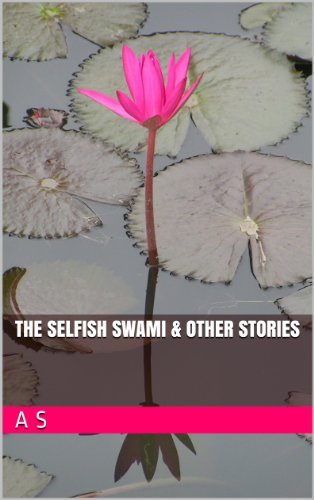'Remember what the Gods did in the days of old,' continued Krishna. 'They had to offer sacred Purusha to make creating possible. Without a sacrificial offering, you cannot create anything,' said Krishna as if speaking to himself. 'If you want a woman, you have to offer something: a present, a house to live in, lifelong protection. But in that way you will only get a woman, her body, her services. The offering however is like sacrificing ghee or barley or a lamb to obtain a place in heaven. If you want a divinity to inspire you to Dharma and multiply your strength a hundredfold, you must offer something vastly greater. Have not the Gods said: 'By the spirit of sacrifice alone shall sacrifice prosper?'
Reading that, led to great epiphany!
The above passage is from a dialog in which Krishna explains to Uddhava, the difference between love and lust. In the above passage, Krishna goes deeper still to discern an ordinary wife from a wife, who is a spiritual partner forever, who is a co-traveller on the road of dharma, artha, kāma and mokṣa*, who is a true Dharma-Patnī.
Krishna says that an ordinary wife is obtained by offering a present, a house to live in, life long protection. But to get a Dharma-Patnī, one has to offer 'something vastly greater'.
It is impossible to offer something vastly greater to someone barely known, as in an arranged marriage situation. Even in a marriage where the couple have known each other before the wedding and fallen in love, it is extremely rare that they would go through experiences which cause them to make this offer of something vastly greater. In most marriages, such experiences and realizations come much after the wedding, after the couple have gone through many ups and downs together. That is why, the older generations of Indians, who mostly went through arranged marriages, used to say that love is something that happens after marriage.
In an ideal arranged marriage, the groom's family choose a girl who has the potential to become an ideal Dharma-Patnī. Then, the couple go through life together, sharing the pains and pleasures, and hopefully discovering that which would get them to truly commit to something vastly greater.
All my life, I have sought exactly that kind of a Dharma-Patnī, a partnership where we are both committed to something vastly greater than our individual selves, a partnership that would inspire us on the path of dharma, artha, kāma and mokṣa, and increase our combined strength a hundredfold.
When I found such a person, I was not ready, so I could not make the proper sacrifice. I had to go through a lot of pain, through a purifying fire, to be ready to participate in this sacrifice. Now, by the grace of the Goddess, I am ready to offer that something vastly greater, to participate in this yajña with my Dharma-Patnī.
Unfortunately, my actions of the past have caused her to not be ready now. So, I have to wait for her to have a similar realization, before we can do this yajña together. Hopefully, her realization will come soon and with no pain. Until then, I shall keep myself pure and committed to her.
*Incidentally, there is a reason why dharma (Dharma), artha (wealth), kāma (lust) and mokṣa (liberation) are usually written in that order. The idea is that the pursuit of artha and kāma must always happen within the limiting bounds of dharma and mokṣa!









Just went through the ur comments in metblogs. Its exactly 1 yr ago.. Its Awesome!!!! They hav replied. Rite now my Kannada Comments hav been deleted.
ReplyDeleteI am Sure the Blog will Die Soon!!!!!